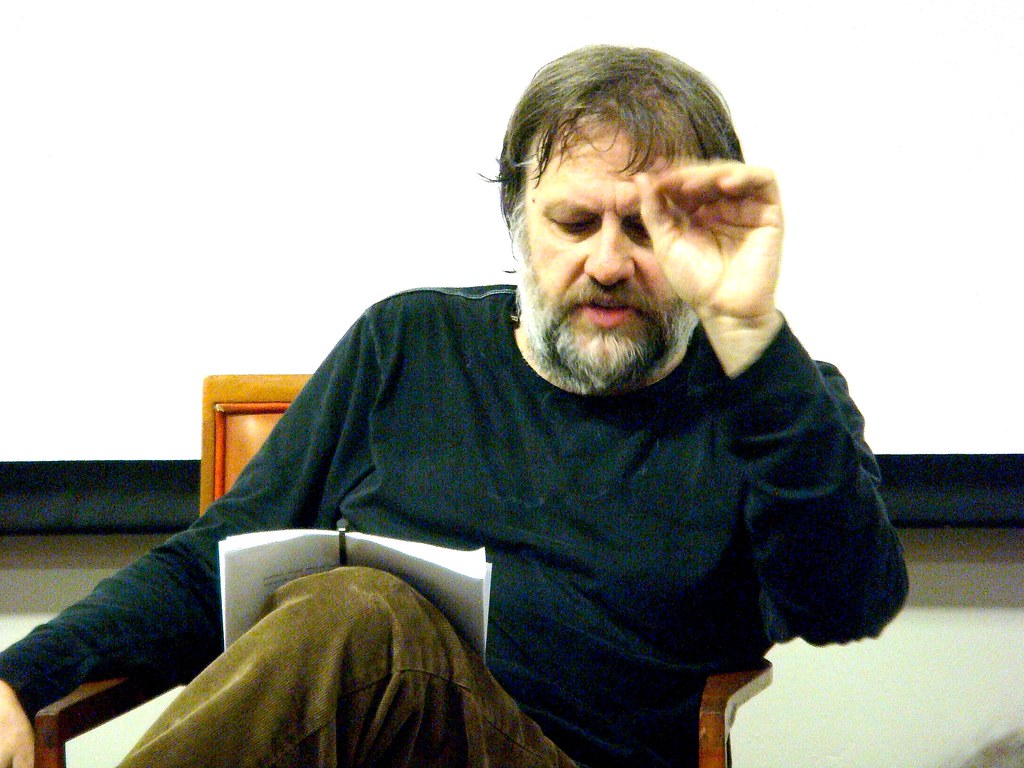Review: Pandemic! Slavoj Zizek, Polity.
A Left that Dares to Speak its Name, Slavoj Zizek, Polity.
Slovenian philosopher Slavoj Zizek fires off books at a rapid rate, so it’s no surprise he has been quick to release a (short) book on the COVID19 pandemic, and perhaps appropriately the book’s cover design displays the Hitchcockian title in such a way that it can also be read as ‘Panic!’, considering second waves and talk of economic catastrophe. But rather than an encouragement for panicking, the book is an opportunity for a wider look at how the pandemic fits with other issues we face.
Lockdowns have meant a return to more basic ways of living, and a reminder of the importance of family. As Zizek notes, staying away from loved ones has been a form of sacrificial love, but he also suggests that the pandemic means not merely a focus on individual behaviour. It is also a chance to look at the structures of society, and of course the pandemic has not occurred in isolation (pardon the pun), just as it is not really unprecedented or never-to-be-repeated (experts have warned us about the increasing likelihood of global pandemics), but intersects with other issues – populism, nationalism, inequality, and, as we have seen primarily in the US, racism.
Zizek is interested in contradictions, the counter-intuitive and, like G K Chesterton, paradoxes, and while it may seem we are exclusively focussed on the pandemic, it only reminds us of the urgency of other issues, and this is just the time when new possibilities arise for addressing inequalities and injustices. Especially seeing that the vulnerable – the elderly, those without good healthcare, low-paid workers on the frontline – are the ones who are hit worst by the pandemic. We hear often about when we are going back to ‘normal’, but there is a countervailing opinion that we can’t return to whatever we thought of as normal, and perhaps the good side of this is that we realise how destructive and exploitative some aspects of our lifestyle have been.
There is some irony in the fact that measures to limit the spread of the virus that would have previously been dismissed as communism in the West have been taken up, including by the US government. Zizek notes, as have others, that the pandemic shows up the limitations of the idea that the free market is the answer to every problem, and that, rather, the global responses are evidence that top-down radical changes towards better care of the vulnerable are entirely possible, that we can prioritise people over the economy.
His book A Left that Dares to Speak its Name is a collection of recent pieces on issues that occupy someone of Zizek’s political bent. It is interesting that many of these issues – resurgent racism and nationalism, globalism, ecology, the perils of the online world – become even more relevant, rather than sidelined, with the pandemic. (For example, the clearing of the air over parts of China during the early stages of their lockdown was an interesting aspect of the pandemic.) And his insistence that the political Left should stop carping from a safe remove – a key argument that threads through the multifaceted collection – and offer solutions, despite the fact that the Left cannot offer utopias, also becomes more relevant.
As perhaps befitting someone who likes Chestertonian paradox, Zizek describes himself as a Christian atheist (though being a Christian atheist is not exactly oxymoronic, merely somewhat unusual). In any case, it perhaps gives non-atheist Christians a chance to decide whether they would like to identify with Zizek or not. But Zizek warns of the dangers of false oppositions, often exploited by politicians – Democrats versus Republicans, China versus the US, open borders versus racism (or for that matter, male versus female, black versus white, atheist versus believer). (And, we may note, Jesus too avoids false opposites by hanging out with the irreligious and ostracised, the poor and women.) Rather, the true opposites are oppression versus empathy, selfishness versus selflessness. So while some aspects of Zizek’s thought may not appeal to non-atheist Christians, there is plenty to find common cause with.
Nick Mattiske blogs on books at coburgreviewofbooks.wordpress.com






1 thought on “Zizek and “Atheist Christianity””
Enjoyed this.